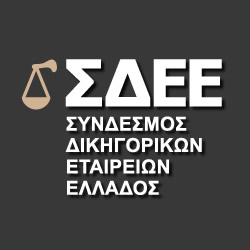(Published in International Family Law Review, June 2004)
The continuous request of Lawyers’ Bar Associations and citizens from all over Greece for the establishment of Legal Aid for citizens of low income became on February 2004 integral part of Greece’s legal system.
According to Law 3226/2004, published in the Government Gazette on 4.2.2004, Legal Aid is granted to all citizens of the European Union as well as to citizens of third countries who have legally a permanent or a usual domicile in the European Union, in case their annual family income does not exceed the 2/3 of the lowest annual personal income provided by the National General Collective Working Agreement.
Procedure
The application must be supported by several certificates from State authorities evidencing the financial situation of the applicant and has to be submitted at least fifteen days before the trial. If successful, the applicant is granted Legal Aid covering all levels of jurisdiction including enforcement of any resulting order.
The local Bar Association makes out two lists of selected lawyers, one for penal matters and one for civil/commercial matters, on a monthly basis, and hands it over to the local Courts.
Granting Legal Aid
Legal Aid is granted in preliminary proceedings by the magistrate, the judge of the One Member Court of First Instance or the chairman of the court where the main application is to be heard. The court granting Legal Aid will determine the extent to which the litigation expenses (including the lawyer’s fees) will be covered.
Content of Legal Aid
Legal Aid in penal matters consists in the appointment of a defence counsel who is obligatory accepted by the person entitled. In civil/commercial matters it consists a) in the discharge from the obligation of the total or partial payment of the judicial expenses and b) in the appointment of an attorney, a Notary public and a process server with the mandate to help and represent the person entitled.
Out of borders
If the person asking for Legal Aid has his permanent or usual domicile in another country-member of the EU, the discharge may include also the remuneration of the interpreter, the expenses for the translation of documents and the travelling expenses. In this case the competent Authority will be the Ministry of Justice.
Resources
A special credit per year is registered in the budget of the Ministry of Justice for the compensation of the attorneys, Notary publics and process servers granting Legal Aid, according to the lowest provided specification limit of remuneration.
As a conclusion, one should mention that by the application of this new Law, the Greek legal system has made significant steps forward in relation to both legal and social issues of everyday life.






